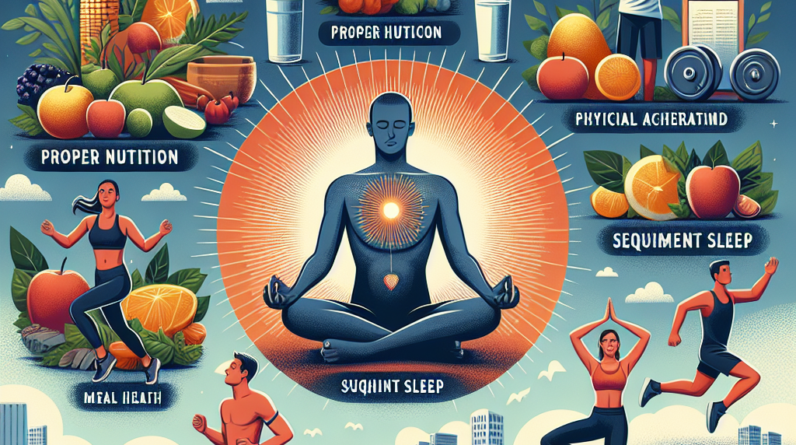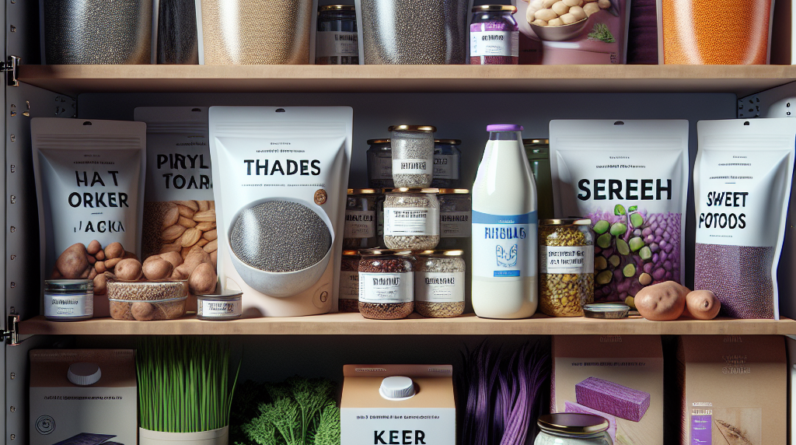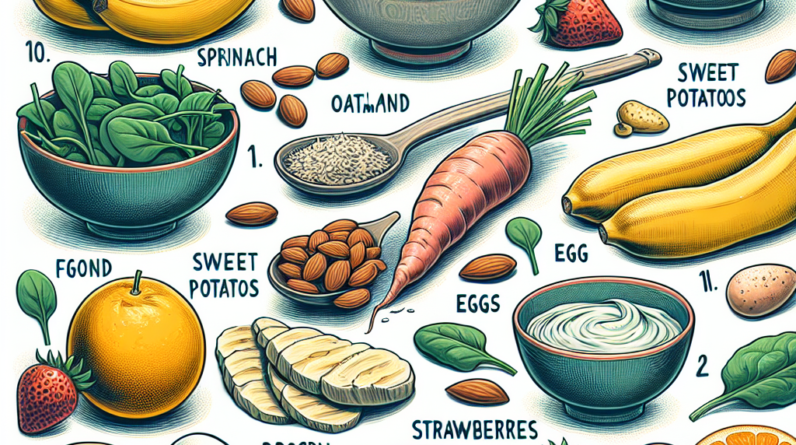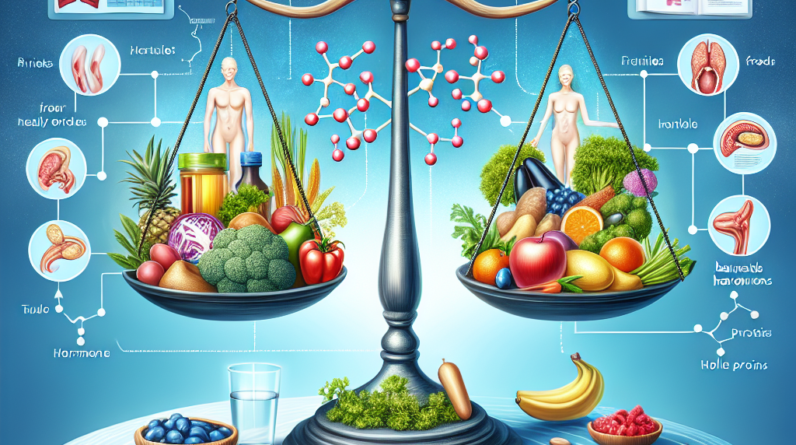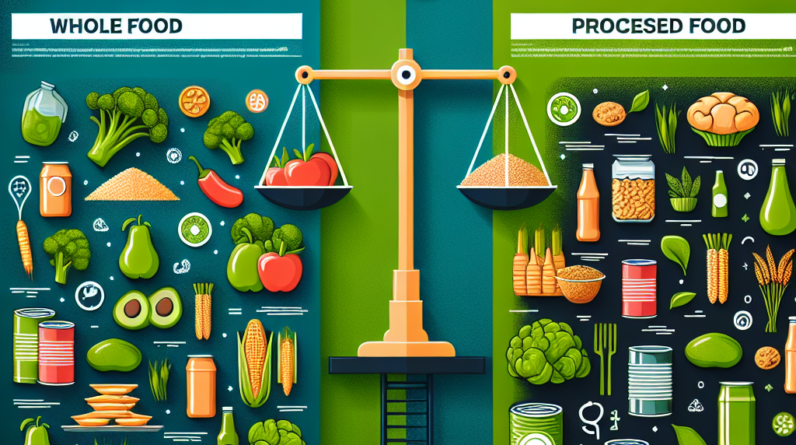
Understanding Whole Food
What is Whole Food?
Whole food refers to foods that are in their natural state with minimal processing. Think of fresh fruits, vegetables, whole grains, nuts, and seeds – basically, ingredients you can recognize without needing to read an ingredient list.
Get a Huge Discount and Bonus! Try for 90 Days Risk Free
In my experience, whole foods are usually found around the perimeter of the grocery stores. You know, the area with the fresh produce, dairy, meat, and bakery sections. The real stuff, not the stuff in boxes and bags.
Whole foods are full of nutrients because they haven’t been messed with much. No added sugars, preservatives, or artificial ingredients, which makes them the ideal choice for a healthier diet.
Why Whole Foods Matter?
Whole foods matter because they provide our bodies with essential nutrients we need to function. Eating whole foods can lead to better digestion, more energy, and overall better health. It’s like fueling your car with premium gas versus regular – it just runs better!
I’ve noticed a huge difference in my energy levels when I eat whole foods versus processed junk. I’m more alert, and I don’t experience the mid-afternoon slump as badly.
Plus, whole foods help prevent chronic diseases. There’s a ton of research that shows eating a diet rich in whole foods can lower the risk of heart disease, diabetes, and some cancers.
Finding Whole Foods on a Budget
Eating whole foods doesn’t have to break the bank. One trick is to buy in season. In-season produce is usually cheaper and tastes better. Also, don’t be afraid to buy frozen fruits and veggies; they’re often harvested at peak ripeness and then frozen to lock in nutrients.
Buying in bulk can also save money. Grains, nuts, and seeds are great to buy in bulk. You’ll get more for your money and they have a longer shelf life.
Local farmers’ markets are another great place to score deals on fresh, whole foods. Plus, you’re supporting local farmers, which is always a good thing.
Get a Huge Discount and Bonus! Try for 90 Days Risk Free
The Pros and Cons of Processed Foods
What are Processed Foods?
Processed foods are any food items that have been altered from their natural state. This includes canning, freezing, refrigeration, dehydration, and aseptic processing. Processed foods are everywhere: cereals, canned vegetables, snacks, and even some meals ready to eat.
From my perspective, processed foods are convenient. They’re easy to store, have a long shelf life, and are quick to prepare – all factors that make them appealing for busy folks.
But here’s the catch – processed foods often contain added sugars, unhealthy fats, and sodium. These additives can lead to health problems if consumed in excess.
Pros of Processed Foods
One major pro of processed foods is convenience. When you’re short on time, grabbing a pre-packaged meal can save the day. It’s also easier to find processed foods and they generally have a longer shelf life.
Need a Serious Energy BOOST? Huge Discount Try for 90 Days Risk Free
Processed foods can also be fortified with essential nutrients. For example, many cereals are fortified with vitamins and minerals, which can help prevent nutrition deficiencies.
There’s also usually less food waste with processed foods. Because they last longer, you can stock up without worrying about the food going bad before you get to it.
Cons of Processed Foods
The downside to processed foods is that they often come with unhealthy additives, like extra sugar, salt, and artificial ingredients, which can contribute to health issues like obesity, heart disease, and diabetes.
Another con is that processed foods are often lower in essential nutrients compared to their whole food counterparts. The processing can strip away important vitamins and minerals.
Finally, many processed foods contain trans fats, which are particularly bad for your heart health. In my book, the negatives often outweigh the convenience factor.
Health Benefits of Whole Foods
Nutrient Density
Whole foods are more nutrient-dense than processed foods, meaning they provide more vitamins, minerals, and other beneficial nutrients per calorie. This can help you get the nutrients you need without consuming too many calories.
From a personal standpoint, the improvement in my overall health when I focus on whole foods is noticeable. I feel stronger, more energetic, and generally healthier.
Choosing whole foods over processed foods ensures you’re getting a range of nutrients that canned or packaged foods just can’t match.
Weight Management
Whole foods can help with weight management. They are often lower in calories and higher in fiber, which helps you feel full longer and can prevent overeating.
In my experience, whole foods keep me satisfied throughout the day, which means I’m less likely to snack mindlessly. I’ve found it easier to maintain a healthy weight when eating more whole foods.
If weight loss is your goal, focusing on whole foods could be a game-changer. They help you feel full on fewer calories, which is a key factor in managing weight.
Boosted Immune System
Eating whole foods can help boost your immune system. They are rich in vitamins and antioxidants that support immune function and can help your body fight off illnesses.
Personally, I’ve had fewer colds and felt healthier overall since I made a conscious effort to include more whole foods in my diet.
Your body needs a variety of nutrients to function properly, and whole foods provide a broad spectrum of these essential elements.
How to Make the Switch to Whole Foods
Start Slow
Making the switch to whole foods doesn’t have to happen overnight. Start by slowly incorporating more whole foods into your diet. Simple changes like choosing fresh fruit over a candy bar can make a significant difference.
I started by replacing one processed snack with a whole food snack each day. Over time, these small changes add up and before you know it, you’re eating a lot more whole foods.
Your taste buds will adjust too. Foods you once thought were bland will start to taste better as you become more accustomed to the natural flavors of whole foods.
Plan Your Meals
Planning your meals in advance can make it easier to stick to a whole food diet. When you have a plan, you’re less likely to reach for processed convenience foods out of desperation or lack of options.
I usually spend some time on Sundays planning my meals for the week. This way, I ensure I have all the ingredients I need and can incorporate a variety of whole foods into my diet.
Meal prep can also be a huge help. Preparing meals in advance means you have healthy, whole food options ready to go, even on the busiest days.
Find What Works for You
Not all whole foods are created equal, and it’s important to find the ones that you enjoy and fit into your lifestyle. If you don’t enjoy kale, don’t force it. There are plenty of other nutrient-packed greens to choose from.
Experiment with different recipes and foods to see what you like. Keeping things varied and enjoyable will make it much easier to stick to a whole food way of eating.
Remember, it’s not about being perfect. Aim for progress, not perfection. Every step towards more whole foods is a step in the right direction for your health.
Frequently Asked Questions
Are all processed foods bad for you?
No, not all processed foods are bad. Some processed foods, like canned beans or frozen veggies, can be part of a healthy diet. It’s the highly processed foods that are often full of unhealthy additives that should be limited.
Can I still eat processed foods and be healthy?
Yes, you can still eat processed foods and maintain a healthy diet. The key is moderation and making sure that the majority of your diet consists of whole foods.
Why should I choose whole foods over processed foods?
Whole foods provide more nutrients, are free of unhealthy additives, and can help prevent chronic diseases. They support overall health and well-being better than processed alternatives.
How can I start eating more whole foods?
Start by making small changes, like replacing a processed snack with a piece of fruit. Plan your meals to include more whole foods and experiment with different recipes to find what you enjoy.



